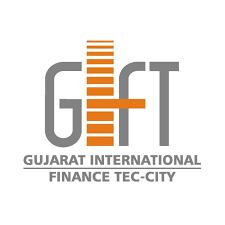This week, following twenty-two years of servicing international investors and representing more than half of the offshore interest in the Indian equity index, the Singapore Stock Exchange Nifty (SGX Nifty) moved to the Gujarat International Finance Technology City (GIFT) International Financial Services Centre (IFSC) in its new avatar, the GIPT Nifty.
Under this arrangement, trades will be routed to NSE Internaional Exchange (NSE IX) GIFT City from the SGX for trading and execution. This is a big step forward in GIFT City’s journey to emerge as a leading International financial service centre and will significantly increase trading volumes and liquidity in GIFT, attracting more investors, traders, and market intermediaries.
The story of Gift City has just started unfolding. With increased focus from the government, GIFT has successfully attracted the international community’s attention within a short period with a banking asset book of $35 billion or more. Similarly, the insurance sector has seen the sum insured rise to $30 billion, and we have seen a sharp increase in the number of registered alternative investment funds (AIFs) and fund houses.
The International Financial Services Centres Authority (IFSC), the international regulator for IFSC, has adopted principle-based regulations and has a consultative approach to regulation, further enhancing its attractiveness for financial sector participants.
Gift City started liberalising capital and liquidity requirements a few years ago, and starting with Standard Chartered in 2020, the last three years have seen eight more international banks establish banking units here. As an offshore jurisdiction within India, GIFT can offer financial services within a liberalised foreign exchange regime. This has been done with a vision to bring to the Indian shores those financial products and services relating to India that are currently carried out outside India by overseas financial institutions.
In the last union budget, corporate withholding tax (WHT) rates on external commercial loans and rupee bonds invested by offshore investors from other offshore locations were withheld, making GIFT all the more attractive for issuing foreign currency loans for Indian corporates with zero WHT.
The government has ambitious plans for further growing financial and technology businesses at Gift City. The aim is to achieve the objectives through financial incentives, ease of doing business, and world-class infrastructure. According to government estimates, GIFT City will create 500,000 direct jobs and equal indirect employment upon realising its full commercial potential. These jobs will be spread across various sectors, including offshore banking, finance companies, commodity exchanges, asset management, global trading, insurance, IT and ITeS companies, and data centres.
In addition to developing the financial sector, an impetus is also being given to attract corporates and MNCs to set up their regional or global corporate treasury centres at GIFT City. Being an IFSC, many of the Foreign Exchange Management Act (FEMA) regulations that
apply to onshore corporates are not applicable at GIFT City-the-Red by creating a conducive environment to set up a cross-border or regional treasury where currently many corporates operate such treasury centres from Singapore, Hong Kong, and Dubai,
The pace of growth, participation, and investment at GIFT City has significantly increased in the past three years. Establishing a unified regulator, consistent policy from the government, and renewed interest among investors have propelled its growth as a financial hub-home to 350 plus enterprises such as offshore banking, international stock exchanges, AIFS, brokers, insurance companies, and others.
Overall, GIFT City will deepen India’s integration with the global financial sector and further strengthen India’s growing recognition in the international arena. As technology continues to reshape the financial industry, we look forward to GIFT being a key catalyst in accelerating the adoption of emerging technologies such as blockchain, artificial intelligence, and digital currencies and further positioning itself as the frontrunner in the emerging financial landscape.
(Author is cluster CEO, India and South Asia markets, Standard Chartered Bank.)
Source – The Economic Times



